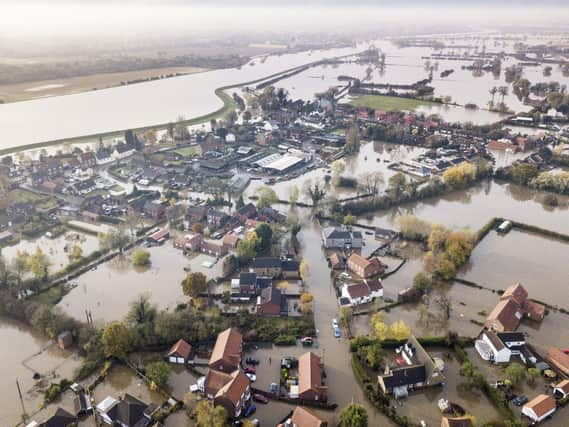Natural solutions for floods and climate change are needed - Sheffield Hallam MP Olivia Blake


As we move on from the pandemic, ministers need to wake up to the other risks that can turn our lives upside down. The climate emergency and what that means for Yorkshire should be top of our agenda.
Those of us in South Yorkshire are all too familiar with how disastrous flooding can be. In 2019, whole swathes of our region were submerged after the Don and Sheaf rivers burst their banks. Ninety per cent of homes in the village of Fishlake were flooded, and well over a year on from the terrible event many were still waiting for repairs, or not even able to return to their homes. In the early stages of the flooding, Boris Johnson was nowhere to be seen.
Advertisement
Hide AdAdvertisement
Hide AdFloods – and the colossal impacts they have on individuals, businesses, and entire communities – are devastating. But within the Conservative government there is still a lack of understanding of the wider impacts of flooding and the urgent need for flood management measures. While it’s often repeated that the climate emergency will increase the occurrence of extreme weather disasters, the scale of such crises are, unfortunately, often not taken seriously.
Flood management measures are a lifeline for at-risk communities in times of crisis. It’s been fantastic to see the measures taken by our region’s authorities working together – from Labour councils, the environment agency, to the city regions. These critical collaborations will ensure that, when the next flood hits, it will impact fewer people.
But there are many cities across Yorkshire and the UK that are still at risk of rising water levels, like the bulk of the city of Hull which lies below sea level, or Doncaster which, without urgent action, will reportedly become a seaside resort by 2050 due to rising sea levels. In such areas there is a pressing need for targeted climate mitigation measures to ensure that hundreds of thousands are not put at greater risk.
When people think of flood defences, they often think of large concrete structures. But we cannot just build higher and higher walls. With the climate crisis we need to begin diversifying our defences, by reconsidering land-use and incorporating nature-based solutions.
Advertisement
Hide AdAdvertisement
Hide AdI recently visited two of the region’s big flooding schemes – the Bentley Ings Pumping station, which constantly pumps water out of closed mines to prevent flooding, and Lady Canning’s Plantation, a woodland next to moorlands in my constituency. Both are necessary to help decrease the risk of flooding. While the pumping station is an example of a more mechanical intervention, Lady Canning’s Plantation is a great example of the potential for natural flood management, using natural processes to reduce flood risk. The site is managed through a partnership between Sheffield City Council, Sheffield & Rotherham Wildlife Trust, and the Environment Agency.
The woodland plays a vital part in mitigating flooding by slowing down run-off and reducing flooding downstream. Not only do projects like this help to mitigate flooding across the Sheffield and wider Don catchment by storing and slowly releasing water, they are great carbon stores, locking in CO2 and thereby delivering for climate justice too.
Natural flood management can take many forms, from maintaining woodlands to creating saltmarshes to restoring and rewetting moorlands. Taking a catchment-based approach to flood mitigation, we can create a whole system that holds water back and delivers for nature and carbon at the same time. Restoring peat in the uplands and planting trees in Sheffield can reduce the total amount of floodwater that can reach Doncaster, preventing the next disaster before it occurs.
Natural flood management offers a clear win-win: offering long-term benefits that will deliver for generations to come by reducing the impact of floods, restoring our natural environment, and tackling the climate crisis. It is also a lot less expensive than other solutions often costing thousands rather than millions.
Advertisement
Hide AdAdvertisement
Hide AdHowever, under the current funding system it’s hard for public authorities to make the case for nature-based solutions. The metrics that decide which schemes receive funding are far too narrow and don’t take into account the wider social, biodiversity or carbon benefits that can be derived.
We need to begin to think of flood prevention and mitigation infrastructure as national assets that benefit everyone and actively contribute towards meeting our net zero obligations.